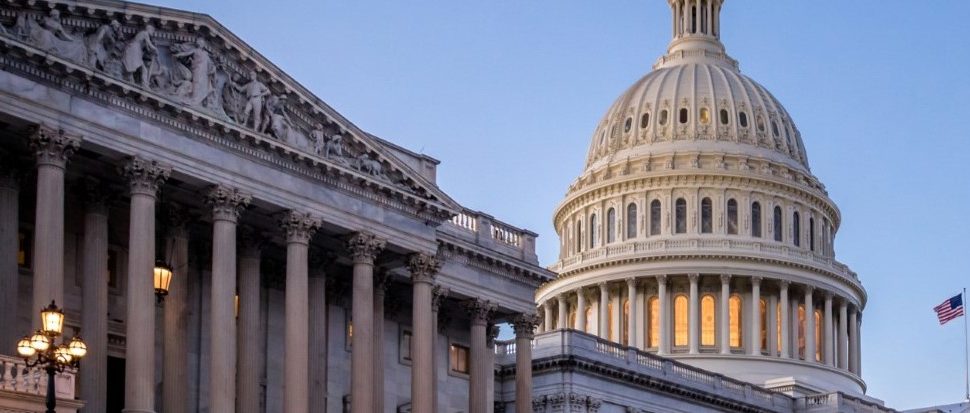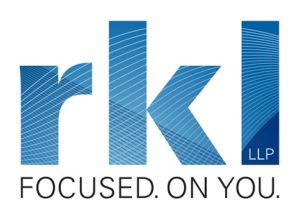CARES Act Analysis from RKL: Learn the Impact on Families, Small Businesses, and Employers

 The largest federal stimulus bill in U.S. history – the Coronavirus Aid, Relief, and Economic Security (CARES) Act – was signed into law on March 27, triggering $2.2 trillion in spending and relief measures for businesses and families grappling with the impact of coronavirus on their livelihoods and bottom lines. Professional services firm RKL LLP takes stock of the bill’s major provisions to help individuals, families, small businesses, and employers know what to expect and how they may benefit.
The largest federal stimulus bill in U.S. history – the Coronavirus Aid, Relief, and Economic Security (CARES) Act – was signed into law on March 27, triggering $2.2 trillion in spending and relief measures for businesses and families grappling with the impact of coronavirus on their livelihoods and bottom lines. Professional services firm RKL LLP takes stock of the bill’s major provisions to help individuals, families, small businesses, and employers know what to expect and how they may benefit.
Individual & Families
Recovery Rebates (a.k.a. Individual Stimulus Payments): These rebates account for $290 billion of the total spending package. Payments in the amount of $1,200 (single) or $2,400 (married filing jointly) will be distributed to eligible Americans, plus $500 for each child under the age of 17. Individuals age 18 and older will not receive a payment if they are claimed as a dependent by another taxpayer. Exact timing of these one-time payments remains unclear at the time of this writing, but likely during April or May. The payments will be electronic if the IRS has direct deposit information on file from a tax return. Learn more about the payments.
Using Retirement Funds for COVID-19 Costs: The CARES Act permits individuals under the age of 59½ to withdraw up to $100,000 from retirement funds during 2020 for coronavirus costs without triggering the usual 10 percent early withdrawal penalty under Section 72(t). The CARES Act also provides for a temporary, one-year waiver on required minimum distributions (RMDs) from retirement accounts in 2020. Get more info here.
Charitable Contribution Changes: Taxpayers who do not itemize deductions are allowed to take a $300 deduction from AGI for donations to charity. For those taxpayers who do itemize, the 60 percent limit on contributions compared to their AGI is lifted to 100 percent.
Small Business Loans (a.k.a. Paycheck Protection Loans)
The CARES Act dedicates $349 billion for potentially forgivable loans to businesses with fewer than 500 employees, as well as nonprofits and sole proprietorships. Borrowers must make a good faith certification that coronavirus-related “business concerns” necessitate the loan and that the funds will be used to retain workers and/or pay mortgage, rent, utilities and any other debt service requirements. Read on for more details on loan eligibility, size, terms and forgiveness.
Employer Tax Credits
Employee Retention Tax Credit (ERTC): Businesses that closed or suspended operations due to coronavirus can take a one-year credit against the qualified wages it continues to pay its employees between March 13, 2020, and Dec. 31, 2020. If an employer receives forgiveness on a Payroll Protection Loan as part of the CARES Act, they are not eligible to take the ERTC credit. Find out how the credit is calculated and how to claim it.
Delay of Payment for Employer Payroll Tax and Self-Employment Tax: The CARES Act splits and postpones the employer share of the 6.2 percent Social Security tax on payroll, effective from date of enactment through Dec. 31, 2020. Fifty percent will be due on Dec. 31, 2021, and the remaining half must be paid on Dec. 31, 2022. This also applies to 50 percent of self-employment tax, with deferral of 25 percent until Dec. 31, 2021 and the remaining 25 percent until Dec. 31, 2022. If an employer receives forgiveness on a Payroll Protection Loan as part of the CARES Act, they are not eligible for this deferral.
Employer-Paid Student Loans Excluded from Income: The CARES Act permits employers to pay up to $5,250 of employee’s student loan debt on a tax-free basis. This is a combined limit of $5,250 for tuition paid on employee’s behalf plus student debt paid on employee’s behalf.
Federal Tax Changes and Cash Flow Considerations for Businesses
Federal Income Taxes: The new due date for 2019 tax returns and payments is July 15, 2020. Taxpayers should consider a refund if 2019 taxes were overpaid.
Federal Employer Share of Payroll Taxes: Employers can defer paying 50 percent of 2020 portion until Dec. 31, 2021 and the other half of 2020 portion until Dec. 31, 2022. Please note, if an employer receives forgiveness on a Payroll Protection Loan as part of the CARES Act, they are not eligible for this deferral.
Net Operating Loss Rule Changes: As part of the CARES Act, losses from 2018, 2019 and 2020 can now be carried back five years and can offset 100 percent of taxable income. Business owners should consider the impact of pre-and post-tax reform rates. The carryback of NOLs can offset taxes paid at a prior higher rate (i.e., 21 percent versus 35 percent for C corporations).
Visit RKL’s Coronavirus Employer Resource Center to learn more about the CARES Act, read its latest guidance, and register for its weekly webinar series.
[uam_ad id=”80503″]
.
[lp-contribute]
Connect With Your Community
Subscribe to stay informed!
"*" indicates required fields
































![95000-1023_ACJ_BannerAd[1]](https://vista.today/wp-content/uploads/2023/03/95000-1023_ACJ_BannerAd1.jpg)















